Microbee – Alan Laughton
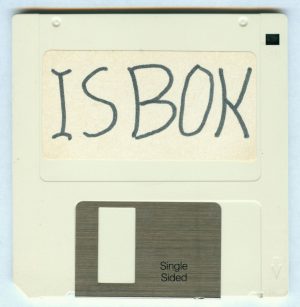
[ 4 comments ]
What got you started collecting on/around the area of games?
Back in the 80’s I was also a stamp collector, so collecting came natural. But for computer games, there was a scarcity of games for the Microbee at the time, so one collected everything you could, be it a type-in, public domain, downloaded from a RBBS, swapped with a friend, etc.
Can you tell us what you collect?
Anything Microbee basically, but games on the high priority. But educational games were good also but difficult to find and limited. But now the hunt is on and have collected most of the games for the Microbee, but only 2/3rds of the Educational material.
What do you find pleasurable/enjoyable (or substitute the word you’d use here) about it?
It’s the thrill of the hunt I suppose and finding material in the most unexpected places. Then being able to share the old abandonware with others.
Do you have any items that hold a special significance for New Zealand/Australia? Can you tell us about one/some of them?
Well 90% of the software that can run on a Microbee has originated from Australia, and I would probably have the largest collection of any Microbee software compared to anyone else. A member of the MSPP wrote a few programs back in the 80’s when he was at school and sold them to Microbee Systems. They payed him a nice royalty. He then wrote another game (he says his best ever game also) called Hopper. This was a Frogger type game. But decided to sell this one direct himself thinking he could make more money that way. He sold 20 copies to the Sydney Microbee Users Group and that was it. So for a game that sold only 20 copies, I/we have been able to locate 2 copies of this game from 2 different sources.
Hopper opening screen
Hopper gameplay screen
Also being able to recover Matthew Hall‘s only Microbee game (The Jewels of Sancara Island) from a printout that has survived 30 years and then being able to locate the missing “sound” code to encode it all back to the original game.
Another story is from Richard Larkin who wrote many programs back in the 80’s when he was in his teens going to school, and had them published in the computer magazines (like Electronic Australia & Your Computer). He then wrote one (ISBOK, an Adventure game) that he then tried to sell, again selling only a few copies to friends. Recently he found a box of tapes in his garage that he forgotten about and I was able to recover 95% of them for him including the adventure game that was previously unknown to the members at the MSPP, call ISBOK (as shown below).
ISBOK cassette and insert
ISBOK floppy disc
What are the biggest challenges you face as a collector?
Never completing the collection and its getting more and more difficult to locate missing games, programs, etc.
Do you consider what you do as having an archival/historical aspect?
Not 30 years ago, probably not even 10 years ago. But most definitely now. I would like to think in 100 years from now and beyond, that the collection of Microbee games and others is still generally available and in a condition that its still readable and playable in their current digital form.

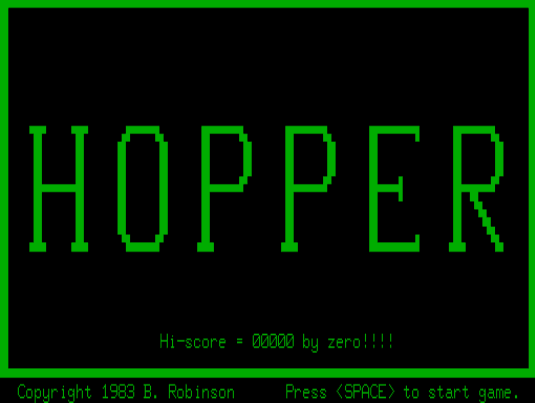
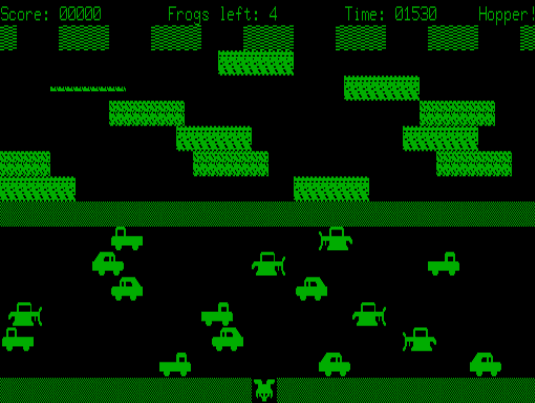
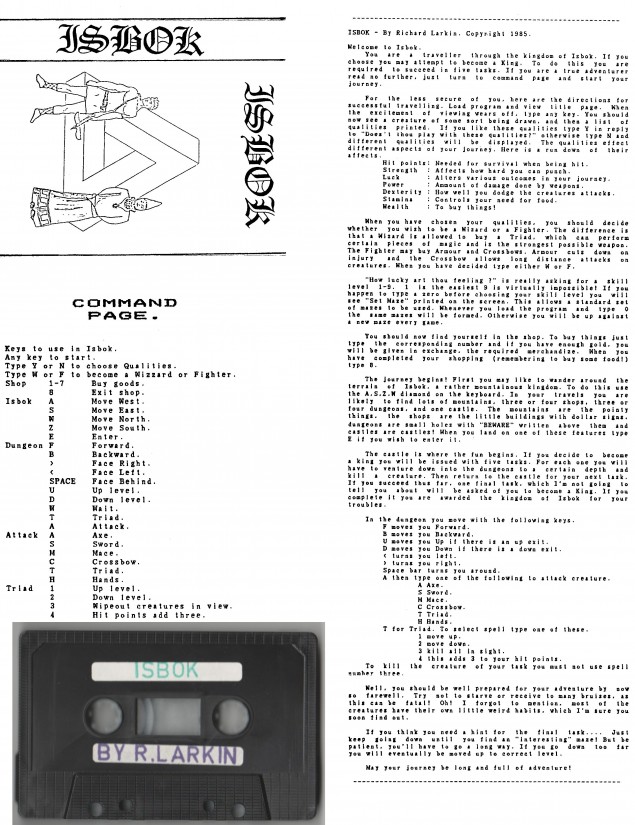
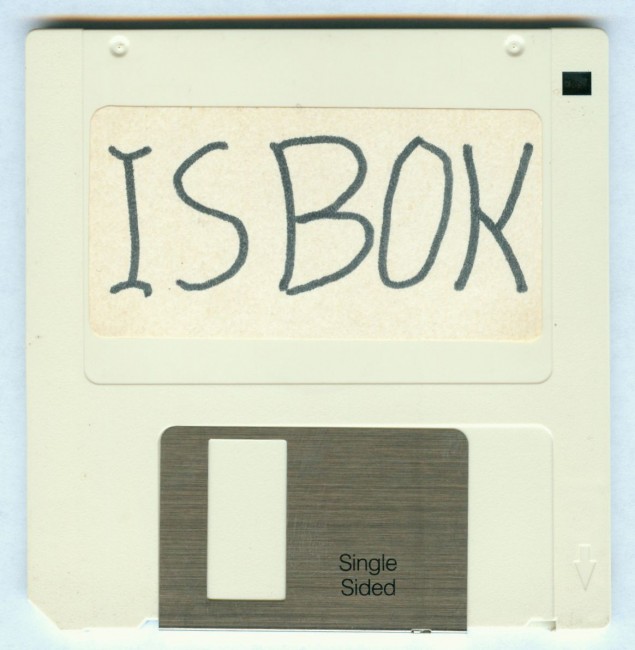
Robotman wasn’t bad but MEGALOSS by JC was more addictive. TI 99 4/A games like Kippys Nightmare are fun too.
Attached image:
I wrote the following games for Microbee in 1982-84: Caves, The Valley, Trader.
I do not have the code, listings or tapes for them now.
As a matter of interest, do you have copies?
Colin, both the Caves & The Valley are on Microbee Honeysoft Adventures # 1 disk, while Trader is on Honeysoft Family Favourites disk. We have both those disks at the MSPP (www.microbee-mspp.org.au).
Cheers,
Alan
Hi guys,
I never quite got over that I handed my beautiful ‘bee over to a cousin for her school use. By then it was a Premium with double disk drives. When it was put aside her father, my BIL, must have thrown it away with all that software, and believe me, I was single, in a good job and a nerd. I had everything plus all the books, T-h-e lot. I should have put a Return-To-Uncle rider on its use.
Stepping back a bit it was in April or May 1983 I think when I gloated over the new Applied Technology Microbee (in kit form) I read about and stared at the picture in Electronics Australia. I worked myself up into a buying frenzy as you do and ordered one.
It cost me $299 and that was a fair bit back then. As it was the very first release it had a crappy thin black plastic cover, not more than a mm thick I reckon. It was later that they released the injection moulded cream case. It was 16kb I believe which swayed me to buy it and not the new Dick Smith Wizard with its mere 8kb or a Commodore 64 . Anyway, I wanted to build one not just buy one. Heck, anyone can do that!
It didn’t work I remember as the power supply was changed to a T03 regulator, but the schematic wasn’t amended and being new to electronics I was lost there. Also it had 1 or 2 resistor networks in them and having never seen them previously, Murphy’s Law says I would put at least one in the wrong way. I worked at Pymble so it was a short trip up to Waitara to hand it over for repair.
I moved up as AT released better models ending up with a Premium hooked up to twin 720k floppy drives.
My earliest recollections are of me sitting there typing in pages of ML for some simple game or other, then saving it to tape. Later a WA company brought out a floppy disk option that wedged into the top part of memory and accessed under MWBasic. My memory is that it wasn’t AT that brought out the first floppy drive for the Microbee. I see that Wikipedia have it that AT released a disk drive in 1983. I don’t remember it that way at all but I am prepared to be corrected. I know I had to buy a $500 single 5.25″ drive all the way from Western Australia plus freight. It was exy alright but I soon had the raw power of a disk drive. How much better was a disk drive? Well to give a comparison, a test-based tape game called Frankenstein took 10 minutes to load. Sure it was at 300baud but I think I got more loading failures back then at 1200baud or the option wasn’t there then. Still sometimes it would fail so go again. That same game took just 3 seconds to load from disk, no fails, and that was through Basic! Big difference and one could put many games, recipes, shopping lists, you know, all the good stuff, on one floppy. Wow so much readily accessible software. It was a cataloguers dream and that is just what I did. It was great days alright . . . for us nerds.
Ah those were the days, plus I was only 20 something. Now I’m old and crotchety and still miss my Microbee.
Back in 2012 I bought the new Microbee Ewen released. I was an early bird and got #4 I think. Still it isn’t the original and it sat for over a year in the shed until I got around to putting it together. I haven’t done anything with it since and it didn’t fix the ache.
If you are interested, Ewen is soon to release an even better Microbee than the last. This time it has onboard colour graphics. No case but maybe you can source an old one and breathe new life into it. I have many disks from the PC era both original games and copies but alas many are flakey and/or unreadable but not one single M’bee diskette. What the hell happened there?
Phil b.
Attached image: